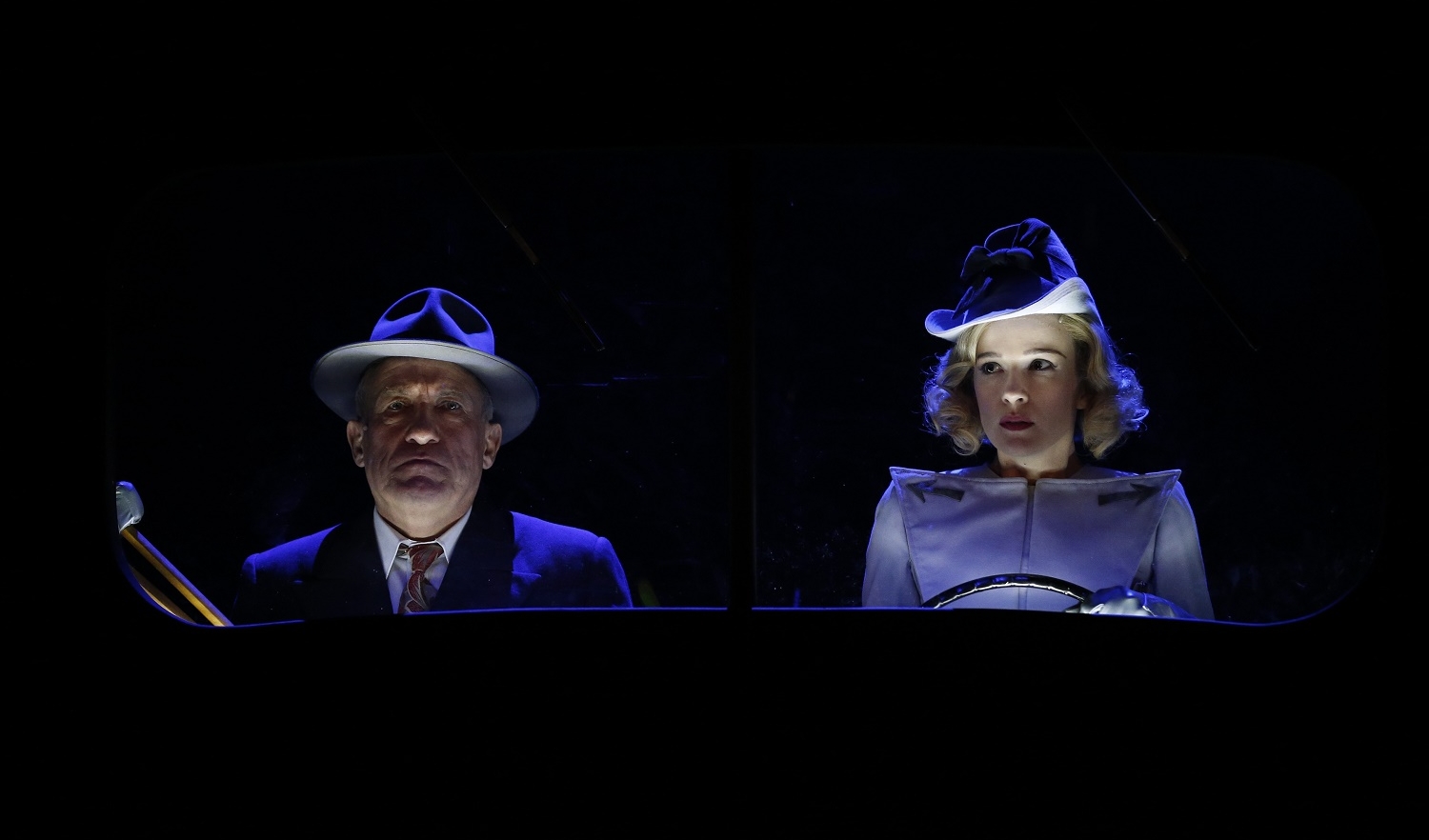The Melbourne Theatre Company’s Double Indemnity is a slick and provocative re-imagining of a classic that suffers from the long shadow of its filmic predecessor and an essential lack of substance.
Billy Wilder’s 1944 film version of the novel by James M Cain is one of the most important movies in the western canon and remains the archetypal film noir. Its improbably witty dialogue and darkly charged view of sexuality and romance have helped make it that an actor can’t so much as take the stage in a trench coat without igniting a slew of audience expectations.
Despite what the tone of the marketing material for Double Indemnity might have you believe, this play takes little to no inspiration from the film and can only barely be considered a noir. Instead writer Tom Holloway draws heavily on Cain’s original book, which next to the high romance of Wilder is stark and emotionally bare. Cain’s Double Indemnity is a grim affair, a modernist fable about the way in which people with seemingly no motivation can be destroyed by plots of their own making.
Holloway’s adaptation takes the pitch black nihilism of Cain’s original and crafts it into a dark comedy reminiscent of the Coen Brothers. Holloway is more than aware of the expectations of its audience and contorts them throughout, having protagonist Walter Huff address the crowd in a self-aware manner from the very first scene. The meta elements on show produce some of the play’s biggest laughs and also speak to the existential alienation that drive Huff to commit his ‘almost perfect crime’. We get a sense of observing the play from inside Huff’s perspective, with the play itself representing Huff’s life coming more and more undone.
Audiences willing to accept that this is not the sort of jaunty Hollywood Golden Age pastiche that MTC’s North by Northwest adaptation was will still find a great deal to enjoy here. The set design by Andrew Bailey – based around a revolving stage – is stunning to behold and remarkably well employed by director Sam Strong. Used alongside Walter Huff’s running narration, it ensures the play maintains a brisk pace when some of the heavier exposition might threaten to derail it. The set design is even more commendable for the way it serves the story as a whole, its ceaseless rust hued momentum coming to mirror the cold inertia of a scheme beyond the control of its author.
The lighting from Paul Jackson beautifully frames the quiet moments in the play without leaning on corny noir chiaroscuro and the understated score from composer Kelly Ryall inconspicuously serves the action. The set decoration and costuming are well thought out and artfully executed, giving Double Indemnity the prestige production feel that audiences are sure to expect.
The play is often quite funny, with much of the comedy here coming from Peter Kowitz doing his best impression of a pit bull as the irascible Keyes. His blustery presence provides a refreshing corrective to the play’s sometimes tiresome stretches of dialogue and amounts to another one of this production’s truly notable performances.
Holloway is clearly conscious of the source material’s problematic gender politics and makes some well-intentioned but awkward efforts to address it through dialogue. These prove unnecessary; a few withering looks from stand out performer Edwina Samuels say more than enough about Huff’s treatment of women to satisfy a modern audience.
Double Indemnity is ultimately let down by emotional gaps in the material that its lead performers struggle to fill. While Ford and van der Boom perhaps bravely avoid aping their filmic counterparts, it is unclear what exactly they are doing in place of this. There is little to no romantic chemistry between the two and neither character exhibits any great personal charisma. Though their lack of traditional motivation or endearing personal qualities could generously be read as the point (see: the meaningless of it all), it also makes them boring to watch.
The play offers no suitable substitute for this emotional core, being neither thrilling enough nor funny enough to wholly succeed on either of those qualities alone. As such, Double Indemnity amounts to a clever, fairly entertaining but ultimately unsatisfying experience. Existential despair has its place in art, but as the best Coen Brother’s movies show, stories about the hollowness of being needn’t feel this hollow themselves.
By Tiernan Morrison

